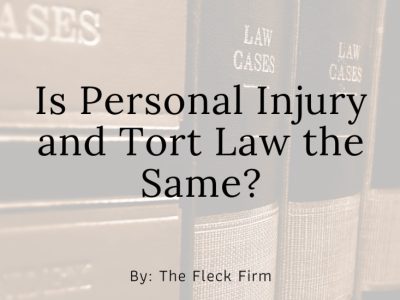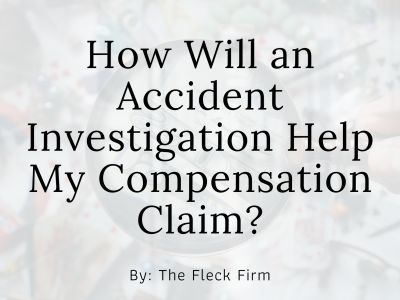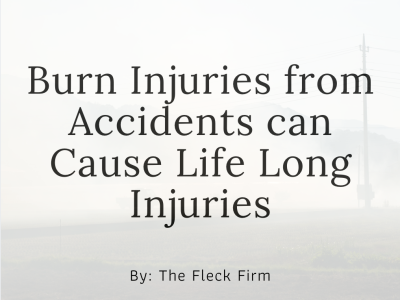Personal injury cases are part of tort law, which covers many issues other than personal injury claims. Personal injury cases involve a physical, emotional, or psychological harm to someone, usually due to their negligence or intentional act. That’s not necessarily true of other kinds of tort cases which may involve just financial losses.
What is Tort Law?
A tort is an act or omission which causes an injury or harm to another. It’s considered a wrong for which civil courts can impose liability on the party at fault. An “injury” is an invasion of a legal right, while “harm” is a loss an individual suffers (which can be physical, emotional, psychological, financial, or reputational).
Tort law seeks to:
- Provide relief to parties injured by others
- Impose liability on parties causing harm
- Deter parties from harming others
- Tort law shifts the burden of a loss from the person injured to a party that’s at fault or in a better position to bear the costs of the loss
Torts fall into three general categories:
- Intentional: Wrongs the defendant (the party sued) knew or should have known would cause harm due to their actions or omissions
- Negligent: The defendant’s unreasonably unsafe actions caused the plaintiff damages (harm measured in dollars)
- Strict liability: These are cases where a product was used as directed but caused damages anyway. It may have been manufactured or designed improperly. It also may not have included appropriate directions or warnings. A plaintiff need not show that the harm was caused by negligence or that the defendant intended to harm anyone
There are many torts, including:
- Assault
- Battery
- Trespass
- Negligence
- Nuisance
- Product liability
- Libel
- Invasion of privacy
- Fraud
A defendant may be liable for several torts based on the same situation.
Other attorneys take contingent fees of 33% to 50% of your settlement.
We want you to keep more of your money.
Our contingent fee is only 30% on cases settled prior to filing suit.
What Controls Tort Law?
Tort law varies by state. Limits on cases are set by state statute and common law (judicial rulings over the years). Judges normally have wide latitude in deciding:
- Which actions (or failures to act) are actionable under tort law
- Which defenses override a claim
- The appropriate way to quantify damages
If serious mistakes are made by a judge, their decisions can be appealed. If an appellate court finds a judge made errors, the case may be sent back to the trial court with instructions on how to properly handle the case.
What Can Be Awarded in a Tort Case?
A party seeking recovery through tort law asks for monetary compensation. Sometimes a remedy can also be a court order that a party take an action or refrain from taking an action or the injured party be restored to their position before the injury took place.
If a defendant acts with extreme indifference to another’s safety or rights, or acts intentionally and harms another, they may be ordered to pay punitive damages. They’re not based on the victim’s harm or injuries, but as a way to:
- Punish the defendant
- Discourage it from doing the same thing in the future
- Discourage others like the defendant from doing the same thing in the future
Punitive damages are rare because it’s usually hard to prove a defendant’s acts are intentional or extreme.
Are Crimes, Torts, and Personal Injury Cases Related?
Torts and crimes are different, but they sometimes run along parallel tracks:
- A defendant in a successful tort case will be ordered by a judge to pay money to the plaintiff and perhaps take some specific acts
- A defendant convicted in a criminal matter may be sentenced to prison, put on probation, perform community services, and if the crime caused a monetary loss – to pay restitution to the victim
- Government involvement (through the courts) usually ends in a tort case when the defendant pays the judgment against them. After a criminal conviction, government could remain involved for years through a corrections department or parole officer
- They involve two different court systems with their own set of court procedures
- Constitutional rights are often issues in criminal cases, but are rarely a part of tort cases
Torts and crimes can involve the same circumstances. A party could be criminally charged and sued in a tort case at the same time.
- A drunk driver causing an accident and injuring someone could be arrested and convicted of a crime
- The driver, when that crime was committed, also provided the legal grounds for a tort/personal injury case when their negligence caused the accident and injuries to another party
If the driver is convicted, that criminal law judgment may be used as proof they’re liable in civil court, so the only issues to be decided are whether the plaintiff suffered damages and, if so, how much should be awarded.
Were You Injured by an Intentional Act or Negligence?
You may have legal rights to compensation if you are injured due to another party’s negligence or intentional actions. Call The Fleck Firm at (270) 446-7000 to schedule a free consultation. We’ll discuss what happened, how Kentucky law may apply, and your best options to proceed. Insurance companies have lawyers. You should have one too.








